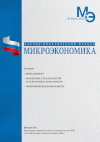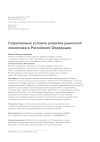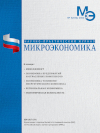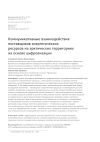Modern conditions for the development of a market economy in the Russian Federation
DOI: 10.33917/mic-6.107.2022.43-48
The article provides a brief analysis of the state of the macro-industries of the Russian economy, it is shown that in the market conditions of the modern post-pandemic and tough sanctions period, there is a need to restructure production to create substitute goods.
This is especially true for small and medium-sized enterprises in all sectors of the economy, where the implementation of the national economic policy is carried out in accordance with the Decree of the President of the Russian Federation No. 204 of 07.05.2018, the implementation date of which is scheduled for 2024, development of all sectors of the economy and types of economic activity, and as a result – to increase sustainable socio-ecological and economic development, quality of life and well-being of the population of the country as a whole, and individual regions, in particular.
References:
1. On national development goals and strategic tasks of the Russian Federation until 2024: Decree of the President of the Russian Federation of 7 May 2018 (ver. of 19.07.2018), Collected Laws of the RF, 20 (14.05.2018) Art. 2817.
2. Babina L.N., Skotarenko O.V. Features of the qualimetric approach in regional studies // Scientific and Technical Bulletin of the St. Petersburg State Polytechnic University. Economic sciences. 2013;5(180):161-165. (In Russ).
3. Vukovich G.G. Dialectics of the laws of the evolution of the natural system and the economic cyclicity of the development of society // Economics of sustainable development. 2011;3(7):30-35.
4. Deruzhinsky G.V. Labor market of an investment-attractive region: features of its functioning in modern post-crisis conditions / G.V. Deruzhinsky, T.G. Stroiteleva // Economics of sustainable development. 2012;1(9):81-86.
5. Kizim A.A., Filichkina T.B. Marketing and logistics in the context of small business development. Science and education: economy and economics; entrepreneurship; law and management. 2014.№ 1 (44).
6. Marx K. On the Critique of Political economy. M.: Publishing House of Political Literature, 1984. 207 p.
7. Regions of Russia. Socioeconomic indicators – 2020. Official website of the Russian Federal State Statistics Service. URL: https://rosstat.gov.ru/
8. Soviet encyclopedic dictionary. Moscow: Publishing house «Soviet Encyclopedia», 1984. 1633 p.





